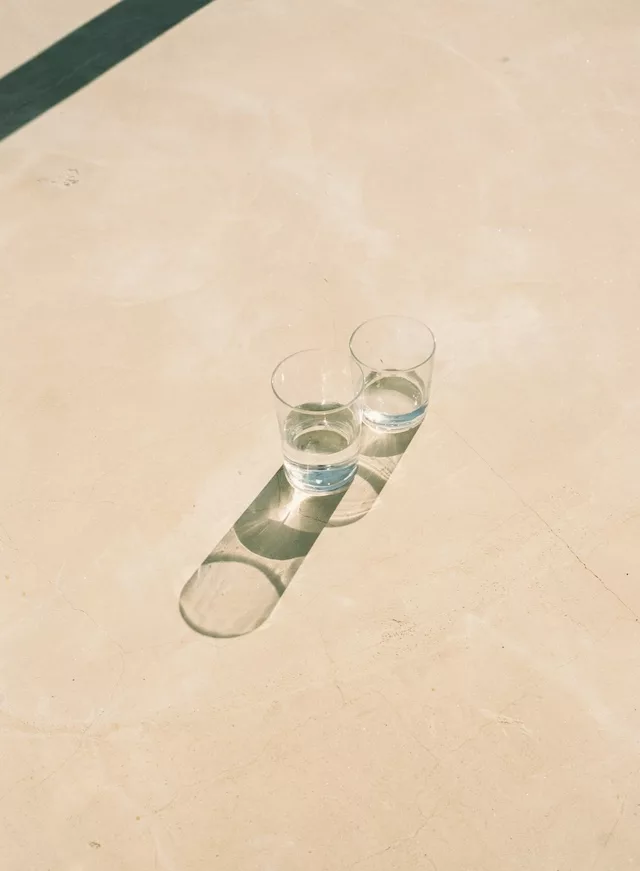Tap water is cheap, convenient, and always available—but is it safe to drink? While it’s treated to meet basic health standards, it can still contain contaminants like chlorine, lead, pesticides, and even microplastics. Tap water quality varies depending on where you live, and in some cases, it may pose hidden health risks. Before you fill up your next glass, we’ll discuss why you should think twice about drinking tap water, its safety, and the five best water filters to ensure you get the cleanest, healthiest water possible.
Water filters are becoming more popular (and necessary) each year to provide everyone with access to safe and clean water. Contaminants can come from an endless list of sources, both naturally occurring and man-made. Groundwater, for example, can pick up heavy metals as it travels through the ground, chemicals get released into the ground, or sewers from factories and farms. Sometimes, natural disasters occur and can affect your water source, requiring a certain level of filtering.
With the Palisades wildfires ripping through the community in Los Angeles, the LAPD and the Department of Water and Power have warned residents not to drink or cook with their tap water due to contamination risks. Wildfires can pollute water in multiple ways—burned trees, buildings, and infrastructure release harmful chemicals into the air, seeping into water systems through damaged pipes or other infrastructure. Additionally, plastic pipes can melt, leaching volatile organic compounds (VOCs) and other toxic substances into the supply. Drinking contaminated water in fire-affected areas can lead to waterborne illnesses like Giardia, intestinal infections, or long-term health risks from exposure to carcinogenic chemicals. In some cases, these water quality issues can persist for years. Situations like this highlight why having a reliable water filter isn’t just about its taste but that it’s a critical safeguard for your health.
Are you wondering if your tap water is truly safe to drink? While treated for basic safety, it can still contain chlorine, heavy metals, pesticides, and even microplastics. This article covers everything you need to know about the different types of filters, what to look for in a water filter, and the five best filters on the market for your needs.
What Contaminants Do Water Filters Remove From Tap Water?


Depending on the type of water filter you have, each filter can remove several different types of contaminants. Some of these chemicals, contaminants, and other harmful materials include:
- Sediment (Dirt, sand, rust, debris)
- Chlorine
- Volatile Organic Compounds (VOCs)
- Some pesticides and herbicides
- Some heavy metals (depending on the type of filter)
- Heavy metals like lead, arsenic, and mercury
- Fluoride
- Bacteria and viruses (if combined with UV filtration)
- Salts and dissolved solids
- Heavy metals
Choosing a Water Filter That’s Right for You
Choosing the right water filter depends on water quality, budget, and filtration needs. Before you even start to see what’s out there, you should test and identify the types of contaminants in your water. You can do this by checking your water report through your water supplier, using a home test kit, or sending a sample to a certified lab. Then, based on your results, you can choose a filter that fits your needs:
Activated Carbon Filters: Removes chlorine, bad taste and odor, and some contaminants (no heavy metals or bacteria)
Reverse Osmosis (RO) Systems: Removes a high percentage of contaminants, including heavy metals, fluoride, and dissolved solids
Ion Exchange Filters: Removes dissolved ions (e.g., minerals) and heavy metals
UV Purifiers: Kills bacteria and viruses, protozoa, and cysts (does not remove physical impurities like chemicals)
An alternative way to determine what a water filter removes is to look for an NSF (National Sanitation Foundation) certification and the number on the filter’s label. The NSF database allows you to look up specific products and see what they are certified to remove from tap water.
Common NSF standards for water treatment include:
- Standard 42 (taste and odor)
- Standard 53 (cyst reduction)
- Standard 58 (reverse osmosis)
- Standard 62 (distillation)
The 5 Best Water Filters on the Market
Choosing the right water filter can make a huge difference in the quality and safety of your drinking water. Whether you’re looking for a pitcher filter, a faucet attachment, or a high-capacity system, there’s a solution for every household. Here are five of the best water filters available.
iSpring Reverse Osmosis System – Best for Comprehensive Filtration
The iSpring Reverse Osmosis (RO) system is a top-tier choice for those who want the most advanced filtration system. This six-stage alkaline remineralization filtration system not only removes up to 99% of over 1,000 harmful contaminants—including PFOA, PFOS, chlorine, fluoride, lead, arsenic, asbestos, and sodium—but also restores essential minerals to enhance the taste and alkalinity of the water. Certified by NSF/ANSI (American National Standards Institute), this system connects directly to your faucet, providing continuous access to clean, great-tasting water and filters that only require changing every six to twelve months. If you’re serious about eliminating contaminants with a meticulous system and maintaining mineral balance, iSpring is one of the best options to choose from.
Buy Now for $206.99 (Reg. $229.99)
Waterdrop Gravity-Fed System – Best for High Capacity
The Waterdrop gravity-fed purification system is perfect for households that need an ample supply of clean water. With a 2.25-gallon capacity, this system is made from durable 304 food-grade stainless steel, resistant to corrosion and wear, and strong enough to withstand up to 220 pounds of pressure. Its 4-stage high-efficacy filtration process reduces up to 98% of fluorine and 98.5% of chlorine while also removing heavy metals, sediments, spores, rust, and other harmful substances. With an impressive lifespan of 3,000 gallons per filter (or 53,000 plastic water bottles), Waterdrop is a long-lasting, eco-friendly solution for purified water.
Brita Elite Filter – Best for Everyday Use
The Brita Elite Filter is superior to its basic model while maintaining simplicity and cost-friendly results. Unlike other filters that strip away minerals, Brita’s Elite Filter retains the essential minerals and electrolytes while reducing over 30 contaminants, including chlorine, mercury, and benzene. The BPA-free filter also removes 99% of lead and five times more contaminants than the original Brita. Designed to fit all Brita pitchers and dispensers (excluding the Brita Stream), it lasts up to six months, saving approximately 1,800 plastic water bottles annually. If you’re looking for a simple way to improve your tap water, Brita Elite is a great choice.
PUR Plus Filter – Best for Faucet Filtration
For those who prefer a faucet-mounted filter, the PUR Plus Filter is an excellent option. It uses a combination of activated carbon, ion exchange, and mineral filtration technology to purify water while improving its taste. Certified to reduce 70 chemical and physical substances—including lead, mercury, and microplastics—PUR outperforms many pitcher filters, removing ten times more contaminants than Brita’s pitcher models. With a lifespan of 100 gallons per filter, PUR is also the only faucet brand certified by both the WQA (Water Quality Association) and NSF. If you want quick access to cleaner, better-tasting water straight from your tap, PUR Plus is a solid investment.
Zerowater – Best for Removing Total Dissolved Solids (TDS)
If you’re looking for a filter that removes virtually all dissolved solids from your water, Zerowater is a great choice. This BPA-free system features a five-stage ion exchange filtration process that eliminates organic and inorganic contaminants, including PFOA, PFOS, lead, chlorine, mercury, chromium, and Class 1 particles. It’s one of the few filters that can bring Total Dissolved Solids (TDS) levels down to zero, ensuring exceptionally pure water. Each filter lasts 15 gallons, saving approximately 110 plastic water bottles per filter. If you want water free of virtually all contaminants, Zerowater is a highly effective option.
FAQ
Isn’t tap water supposed to be already safe to drink?
Tap water is treated to meet basic safety standards, but that doesn’t mean it’s free from contaminants. Heavy metals, chlorine, microplastics, pesticides, and even pharmaceuticals can still get into your water source. Aging infrastructure and environmental pollution can also introduce new contaminants by the time water reaches your home.
Why aren’t all water filters created equally?
Not all water filters are equally effective because they use different purification technologies, remove varying contaminants, require different maintenance levels, and meet different certification standards. Choosing the right filter depends on your water source, health concerns, and personal preferences.
Is bottled water better than filtered tap water?
No, bottled water is often just filtered tap water in plastic packaging. It’s also much more expensive and contributes to plastic waste. A home water filter is a cheaper, more sustainable, and often a cleaner alternative.
Can’t I just boil my water instead of filtering it?
Boiling water only kills bacteria and viruses but does not remove chemicals, heavy metals, or microplastics. In some cases, boiling can even concentrate contaminants (e.g., lead and nitrates) instead of eliminating them.
Filtering tap water is one of the simplest and most effective ways to protect your health. While municipal water treatment systems do their best to provide safe drinking water, contaminants can still make their way into your supply due to aging pipes, industrial runoff, and even natural disasters. A reliable water filter adds an extra layer of security, ensuring that your drinking water is free from harmful substances like heavy metals, chlorine, and microplastics. With so many filtration options available—from simple pitcher filters to high-capacity reverse osmosis systems—there’s a solution for every household and budget. No matter where you live, filtering your tap water is a smart decision that ensures every sip is as clean and pure as possible.




